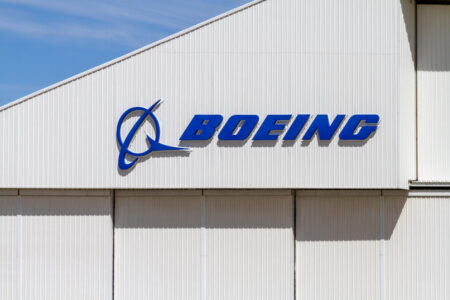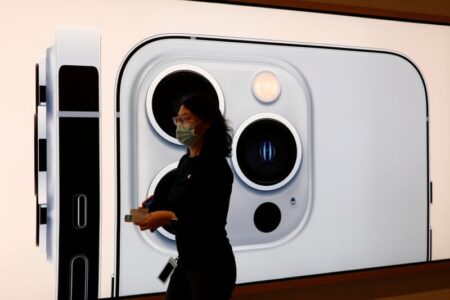T2 Biosystems, Inc. (NASDAQ: NASDAQ:) reported a 35% year-over-year increase in third-quarter 2024 revenue, reaching $2 million. The company, which specializes in sepsis diagnostics, also announced several key developments during its recent business update call.
Key Takeaways:
• Q3 2024 revenue increased 35% year-over-year to $2 million
• Exclusive U.S. distribution agreement signed with Cardinal Health (NYSE:)
• FDA clearance received for T2Candida panel for pediatric use
• Plans to launch T2Lyme Panel as a laboratory-developed test by early 2025
• Collaboration formed with pRxcision Inc. for AI-enabled antibiotic stewardship
Company Outlook
• Anticipates Q4 2024 sepsis product revenue between $2.5 million and $3.5 million
• Projects full-year revenue of $8.5 million to $9.5 million
• Expects full integration with Cardinal Health by early 2025
• Plans to submit T2Resistance Panel for FDA review in Q4 2024
Bullish Highlights
• 42% increase in sepsis test revenue in Q3 2024
• Expansion into pediatric market with FDA clearance for T2Candida panel
• Exclusive agreement with Cardinal Health to reach over 6,000 U.S. hospitals
• Development of T2Biothreat Panel supported by BARDA for national biodefense
Bearish Highlights
• Specific timelines for revenue impact from new partnerships not established
• Decision to establish own laboratory for T2Lyme Panel instead of partnerships
Q&A Highlights
• Confirmed retention of sales force to support Cardinal Health partnership
• Expressed enthusiasm for pRxcision collaboration but provided no specific timeline for revenue impact
• Highlighted challenges in current blood culture diagnostics and potential of AI-driven solutions
T2 Biosystems, a company focused on addressing sepsis, which affects approximately 350,000 Americans annually, has reported significant developments in its recent business update call. The company’s CEO, John Sperzel, announced a 35% year-over-year increase in third-quarter 2024 revenue, reaching $2 million.
A key highlight was the exclusive U.S. distribution agreement signed with Cardinal Health on October 7, 2024. This partnership is expected to accelerate T2’s revenue growth by enabling Cardinal to sell T2’s products to over 6,000 U.S. hospitals. The company anticipates full integration with Cardinal Health by early 2025.
T2 Biosystems also received FDA clearance on September 16, 2024, to market the T2Candida panel for pediatric use, expanding its reach to over 200 children’s hospitals in the U.S. This panel offers faster and more sensitive detection of fungal pathogens, addressing a critical need in pediatric care.
Looking ahead, T2 Biosystems plans to launch the T2Lyme Panel as a laboratory-developed test by early 2025, aiming to improve Lyme disease diagnostics. The company also intends to submit the T2Resistance Panel for FDA review in Q4 2024, which has received FDA breakthrough device designation.
In terms of financial outlook, T2 Biosystems anticipates Q4 2024 sepsis product revenue between $2.5 million and $3.5 million, projecting full-year revenue of $8.5 million to $9.5 million.
The company has also formed a collaboration with pRxcision Inc. to integrate AI in antibiotic stewardship, although specific timelines for revenue impact from this partnership have not been established.
T2 Biosystems will share its audited financial results in early November 2024, providing more detailed insights into its performance and future prospects.
InvestingPro Insights
T2 Biosystems’ recent business update reveals promising developments, but a closer look at financial metrics from InvestingPro paints a more complex picture. The company’s market capitalization stands at a modest $25.87 million, reflecting its current position as a small-cap player in the biotechnology sector.
Despite the reported 35% year-over-year revenue increase in Q3 2024, InvestingPro data shows that T2 Biosystems’ revenue for the last twelve months as of Q2 2024 was $7.16 million, with a concerning revenue growth decline of -45.74% over the same period. This stark contrast suggests that while the company is seeing recent improvements, it is still recovering from a significant downturn.
InvestingPro Tips highlight some critical challenges facing T2 Biosystems. The company is “quickly burning through cash,” which could pose risks to its ambitious growth plans and product development initiatives. Additionally, the stock is “trading near its 52-week low,” with a substantial price decline of -95.16% over the past year, indicating a lack of investor confidence despite recent positive announcements.
The gross profit margin of -267.23% for the last twelve months ending Q2 2024 underscores the company’s struggle with profitability, aligning with the InvestingPro Tip that T2 Biosystems “suffers from weak gross profit margins.” This financial strain is further emphasized by the tip noting that “short-term obligations exceed liquid assets,” which could potentially impact the company’s ability to fund its growth initiatives and partnerships.
While T2 Biosystems’ recent developments, such as the Cardinal Health partnership and FDA clearances, are steps in the right direction, the financial data suggests a challenging road ahead. Investors considering this stock should weigh these opportunities against the significant financial hurdles the company faces.
For a more comprehensive analysis, InvestingPro offers 15 additional tips on T2 Biosystems, providing deeper insights into the company’s financial health and market position.
Full transcript – T2 Biosystms Inc (TTOO) Q1 2023:
Operator: Good day, everyone. And welcome to the T2 Biosystems, Inc. Business Update Call. At this time, all participants have been placed in a listen-only mode. And we will open the floor for your questions and comments after the presentation. It is now my pleasure to turn the floor over to your host, Trip Taylor. Sir, the floor is yours.
Trip Taylor: Thank you, operator. I’d like to remind everyone that comments made by management today and answers to questions will include forward-looking statements. Those include statements related to T2 Biosystems’ future financial and operating results and plans for developing and marketing new products. Forward-looking statements are based on estimates and assumptions as of today and are subject to risks and uncertainties that may cause actual results to differ materially from those expressed or implied by these statements, including the risks and uncertainties described in T2 Biosystems’ annual report on Form 10-K filed with the SEC on April 1, 2024, and other filings the company makes with the SEC from time to time. The company undertakes no obligation to publicly update or revise any forward-looking statements, except as required by law. With that, I would like to turn the call over to Chairman and CEO, John Sperzel. John?
John Sperzel: Thank you for joining our investor call. The purpose of today’s call is to discuss a number of recent developments that we believe can be transformative for T2 Biosystems. In advance of this call, we solicited questions from investors, and we have incorporated our responses to those questions in today’s script. While I will focus my comments on our core sepsis business, I will also address two additional business opportunities, bioterrorism and line disease. Let’s start with a brief description of sepsis and an overview of our sepsis portfolio. Sepsis is the body’s overwhelming and often life-threatening response to infection that can lead to tissue damage, organ failure and death. Sepsis is the leading cause of death in U.S. hospitals, claiming the lives of approximately 350,000 Americans annually. Sepsis also represents the leading cost of U.S. hospitalization, costing our health care system, an estimated $62 billion annually. Lastly, Sepsis is the leading cause of 30-day hospital readmission in the United States, with 19% of sepsis survivors rehospitalized within 30 days and 40% within 90 days. To address the human and economic toll associated with sepsis, T2 Biosystems is commercializing the FDA-cleared T2Dx instrument and the sepsis test panels. The T2Bacteria Panel the T2Candida Panel and the T2Resistance Panel. The T2Bacteria Panel is the only FDA-cleared diagnostic test able to detect sepsis-causing bacterial species directly from blood, in just 3 to 5 hours. The T2Bacteria Panel simultaneously detects six bacterial species with 90% sensitivity and 98% specificity, including E. faecium, Staph aureus, Klebsiella pneumoniae, Acinetobacter baumannii, Pseudomonas aeruginosa and Escherichia coli, the six species detected by the T2Bacteria Panel account for nearly 75% and of all bacterial budstream infections in the United States. The T2Candida Panel is the only FDA-cleared diagnostic test able to detect sepsis causing candida species directly from blood to just 3 to 5 hours. The T2Candida panel detects five candidate species with 91% sensitivity and 99% specificity, including Candida albicans, Candida tropicalis, Candida parapsilosis, Candida krusei and Candida glabrata. According to the U.S. Centers for Disease Control and Prevention, or CDC, the five species detected by the T2Candida panel account for up to 95% of all Candida bloodstream infections in the United States. The T2Resistance Panel is a CE marked diagnostic test able to detect antibiotic resistance genes directly from blood in just 3 to 5 hours. The T2Resistance Panel simultaneously detects 13 antibiotic resistance genes from both gram-positive and gram-negative bacterial pathogens. The T2Resistance panel is currently marketed and sold in Europe under a CE Mark and has received FDA breakthrough device designation, which will provide for a prioritized 510(k) review process. We expect to submit the T2Resistance Panel to the Food and Drug Administration during the fourth quarter of 2024. Our competitors claim that their products can detect sepsis causing pathogens or antimicrobial resistance in 1.5 to 3 hours. However, and this is very important, that is after they wait one to five days for a positive blood culture. A September 20, 2024 article, which appeared in The Lancet, a world-leading medical journal titled, Changing the Culture of Blood Culture, describe the weaknesses of blood culture, including poor sensitivity that has missed infections, slow time to result typically two to three days, vulnerability to contamination, reduced effectiveness in patients who have received antibiotics and a labor-intensive process requiring skilled technicians. Accordingly, our ability to detect sepsis causing pathogens and antibiotic resistance genes directly from blood, without first requiring a positive blood culture is a significant competitive advantage. We have a broad intellectual property portfolio that protects our proprietary direct to blood detection method. In fact, last week, we announced that we have successfully defended against an opposition filed against a key patent in our direct-from-blood detection method in the European Union. The opposition was filed by two of the world’s largest diagnostic companies. One of which was bioMérieux, a leader in blood culture-based diagnostics. On September 19, 2024, the European patent office ruled that T2 Biosystems’ intellectual property position on direct from blood pathogen detection was maintained. And we think this is very important in protecting our competitive advantage in this space. Let’s move to the exclusive U.S. agreement with Cardinal Health. On our last earnings call, I mentioned that we had been exploring a range of strategic alternatives to accelerate the growth of our business and that we were in negotiations with a multibillion-dollar health care company regarding a potential U.S. commercial partnership. On October 7, 2024, we announced that we have entered into a multiyear exclusive U.S. agreement with Cardinal Health. Under the agreement, Cardinal Health has exclusive rights to sell the T2Dx instrument, the T2Bacteria Panel and the T2Candida Panel in the United States. Who is Cardinal Health? Cardinal Health is a distributor of pharmaceuticals, a global manufacturer and distributor of medical and laboratory products and a provider of performance and data solutions for health care facilities. Cardinal Health trades on the New York Stock Exchange under the symbol CAH, has annual revenue of more than $200 billion, has operations in more than 30 countries and has approximately 48,000 employees. How does an exclusive U.S. agreement with Cardinal Health help T2 Biosystems? We believe our agreement with Cardinal Health will be transformative with the objectives of accelerated revenue growth and a faster path to profitability by expanding our access to the more than 6,000 U.S. hospitals. We expect the exclusive nature of the agreement to align interest and motivate Cardinal’s commercial team. Cardinal Health is one of the largest health care companies in the United States that sells to 90% of U.S. hospitals through its extensive commercial organization and holds contracts with a large number of group purchasing organizations. We expect this collaboration to greatly expand our access to the U.S. hospital market, as Cardinal Health has significant commercial and distribution infrastructure, including capital equipment specialists who will sell the T2Dx Instrument. What are the terms of the exclusive U.S. agreement with Cardinal Health the terms of the agreement with Cardinal Health are confidential, but I am able to provide some color on the agreement. The economics and logistics are similar to the terms we have with our international distributors. For example, T2 Biosystems will sell our FDA-cleared products to Cardinal Health, including the T2Dx instrument the T2Bacteria Panel and the T2Candida Panel and Cardinal Health will sell the products to U.S. hospitals. What can the exclusive agreement do for Cardinal Health? The agreement gives Cardinal Health exclusive rights to the only FDA-cleared direct-from-blood pathogen detection products. In addition to the economic benefits, having access to T2 Biosystems’ sepsis products strengthens Cardinal Health’s product offering to microbiology laboratories in the United States. Let’s move to the collaboration with pRxcision Inc. We believe that artificial intelligence, or AI, will have an important and increasing role in health care delivery and specifically in the management of patients at risk of sepsis. AI can be used to diagnose diseases, develop personalized treatment plans and assist clinicians with decision-making. We have been searching for an AI-powered decision support platform to combine with our rapid direct from blood pathogen detection products. On October 8, 2024, we announced a co-marketing collaboration with pRxcision Inc. with the goal of pioneering a new frontier in antibiotic stewardship to combat the growing threat of antimicrobial resistance. Antibiotic resistance is one of the greatest threats spacing modern medicine, with millions of lives at risk. Over 1.27 million deaths are reported annually due to antimicrobial resistance, or AMR, which threatens to render essential antibiotics useless. The stakes are high and time is critical, as each hour of delayed targeted treatment can increase the risk of death by up to 8% for sepsis patients. Who is pRxcision Inc? pRxcision Inc. is a New York-based private company that is leveraging two decades of expertise in antibiotic development to create a real-time AI-powered decision support platform. The product, also called pRxcision, is integrated with electronic health records like Epic and Cerner (NASDAQ:) and provides clinicians with ranked evidence-based antibiotic regimens tailored to each patient’s need. This approach can potentially stop antibiotic misuse, break the cycle of antibiotic resistance, reduce health care costs and ultimately save lives. I encourage all of you to watch a presentation and demonstration of the pRxcision platform at www.prxcision.com/demo. How does the pRxcision platform work? The pRxcision platform is designed to leverage data from diagnostics, such as our T2Dx, to provide another level of precision using advanced pharmacokinetic models, pathogen profiles and real-time patient data to enable clinicians to prescribe the right drug, dose and duration as the patient’s condition evolves. The platform adapts continuously to changing clinical information, providing ranked evidence-based treatment regimens that help clinicians optimize care and improve outcomes. How does the collaboration with pRxcision Inc. help T2 Biosystems? By combining our rapid direct-from-blood diagnostics with AI-driven precision platform, we believe we can empower clinicians with the information to stop infections in their tracks faster than ever before. By providing patient care improving patient care, this collaboration is intended to drive product adoption and create exciting opportunities for growth in a rapidly evolving market. With speed and accuracy at its core, we believe the combined solution can provide hospitals with a powerful tool to improve outcomes and reduce costs. By offering real-time insights and targeted treatment information T2 Biosystems and pRxcision Inc. aimed to reduce the burden of antimicrobial resistance, helping health care systems across the United States take a proactive stance at one of the top global public health labs. Let’s move to the FDA 510(k) clearance for T2Candida in pediatrics. On September 16, 2024, we announced that we had received clearance from the U.S. Food and Drug Administration to market the already FDA-cleared T2Candida panel for the detection of sepsis causing fungal pathogens in pediatric patients. This FDA clearance marks another important milestone in our commitment to expand the clinical utility of our sepsis test panels and allows our commercial team to immediately begin marketing and selling our test to over 200 U.S. children’s hospitals, a significant expansion of our total addressable market. Studies show that the T2Candida panel detects Candida species significantly faster and with greater sensitivity when compared to blood culture-based diagnostics. And we believe the new pediatric testing claim will allow clinicians to improve outcomes and reduce cost by achieving faster targeted antifungal treatment for their pediatric patients. According to the Journal of Fungi, a peer-reviewed scientific journal that provides an advanced form for studies related to pathogenic fungi, Candida species are a major contributor to morbidity and mortality in hospitalized children. Moreover, children with invasive candidiasis present a significant burden to the U.S. health care system with a mean increased hospital length of stay of 21 days and approximately $92,000 in excess hospital costs. A Journal of Clinical Microbiology in 2022 study conducted at the Bambino Gesu Hospital in Rome, Italy, found that pediatric patients suspected of fungal bloodstream infections that were tested with the T2Candida Panel received species identification results 121.8 hours faster compared to blood culture. Let’s move to the plan to commercialize the T2Lyme Panel. Consistent with the September 9, 2024 update on our new product development pipeline, we maintain our plan to launch the T2 line panel as a laboratory developed test, or LDT, and we anticipate launching our T2Lyme Panel by the start of the 2025 tick season. Rather than pursue a partnership with the LDT launch, the company has decided to build or buy its own laboratory. The company believes this strategy will be in the best long-term interest of its stockholders and is expected to result in higher profit margins, give the company complete control of its line business and also provide the potential to use the Lyme laboratory for other tests developed by the company. According to the CDC, Lyme disease is the leading vector-borne disease in the United States, with an estimated 3.4 million tests performed each year at a cost of nearly $500 million. The current diagnostic process is a two-tiered antibody test algorithm that relies on the presence of antibodies and which is only accurate four to eight weeks after infection. During those weeks, the bacteria may spread throughout the body and become much harder to eradicate and treat effectively that may lead to chronic debilitating disease. Let’s move to the plan to commercialize the U.S. T2Resistance panel. The company plans to submit a 510(k) premarket notification to the FDA during the fourth quarter of 2024 and expects to receive a prioritized FDA review given the T2Resistance panel previously received FDA breakthrough device designation. According to the CDC, antimicrobial resistance is an urgent global public health threat. To address the threat caused by AMR, the company has developed the T2Resistance Panel, a direct from blood molecular diagnostic test that runs on the FDA-cleared T2Dx instrument and simultaneously detects 13 antibiotic resistance genes in just 3 to 5 hours. In March 2024, the results of a new study were published in Journal of Clinical Microbiology highlighting the benefits of the T2 resistance panel compared to blood culture and standard microbiology methods, including high accuracy that is 94.7% sensitivity and 97.4% specificity. Rapid turnaround, time that is results available in 4.4 hours versus 58.3 hours in the conventional blood culture-based method and clinical impact that is clinical interventions in 41% of patients in the study for 24 of 59 patients. Let’s move to the plan to commercialize the T2Biothreat Panel. The T2Biothreat Panel is an FDA-cleared direct-from-blood molecular diagnostic test that runs on the T2Dx instrument and simultaneously detects six Biothreat pathogens, including the organisms that cause Anthrax, tularemia, branders, melioidosis, plague and typhus. These six pathogens have been identified as threats by the CDC. And if not treated promptly can have mortality rates of 40% to 90%. Our clinical evaluation of the T2Biothreat Panel demonstrated positive percent agreement or sensitivity of 100% of for all targets, except Francisella tularensis, which was 94.3%, a negative percent agreement or specificity of 100% for all six targets. The National Biodefense Strategy and Implementation Plan includes an objective to quote enhanced preparedness to save lives through development, testing, evaluation, manufacturing, regulatory approval, distribution and an administration of countermeasures. The T2Biothreat Panel was designed for this purpose in collaboration with the government or BARDA, and we expect it to play a role in our nation’s effort to counter biological threats. There are two references to the T2Biothreat Panel in the Assistant Secretary for Preparedness and Response, or ASPR, FY 2025 budget justification document, which covers the period of October 1, 2024 through September 30, 2025. The first is in building a robust and formidable medical countermeasure development pipeline and includes the statement, in partnership with the industry, BARDA has built a robust pipeline of medical countermeasures or MCNs in advanced development, and list the T2Biothreat Panel for multi-target biothreat testing. The second is in biodysimetry and diagnostics and includes the statement also in FY 2023. The first BARDA supported biothreat test panel a test which targets multiple biothreat agents simultaneously was cleared by the FDA from T2 Biosystems. These efforts are part of BARDA’s successes in preparation for potential future biothreat outbreaks. The T2Biothreat Panel detects unique bile threatens pathogens and we believe it provides unparalleled sensitivity and specificity, creating multiple potential sales opportunities, which we are pursuing, including to CDC’s U.S. laboratory response network Aspers U.S. Strategic National Stockpile, U.S. state and public health laboratories or other U.S. government agencies and international government allies. Finally, we’re very pleased to inform you that our U.S. government lobbying efforts have resulted in the following language being included in the 2025 Senate Appropriations bill rapid detection of bioterrorism agents. The committee is concerned that the nation is not prepared to rapidly detect biological agents such as anthrax, tularemia, melioidosis branders and plague. Even though BARDA has successfully supported the development of diagnostic technologies that detect such biothreats, in some cases, simultaneously. The committee strongly urges ASPR to prioritize partnerships with domestic manufacturers capable of producing rapid diagnostics that can detect such threats and develop a diagnostic testing preparedness plan for use during public health emergencies, disasters, and other serious public health presence. Let’s move to our third quarter 2024 preliminary unaudited results. We achieved third quarter total revenue of $2 million, representing an increase of 35% compared to the prior year period, driven by increased sepsis test revenue and instrument revenue. We achieved sepsis test panel revenue of $1.6 million, representing an increase of 42% compared to the prior year period, driven by greater than a 200% increase in T2Bacteria Panel revenue in the United States. We executed contracts for 11 T2Dx instruments during the third quarter, including one in the United States and 10 internationally. We expanded our international distribution network by entering into an exclusive distribution agreement covering Malaysia and Indonesia. We received FDA clearance to market the T2Candida Panel for pediatric patients. We advanced the T2Resistance Panel toward U.S. FDA 510(k) submission, which again is expected to occur during the fourth quarter of 2024. We defended successfully against an opposition of a key pattern for the company’s innovative direct and blood pathogen detection method filed with the European Patent Office by bioMerieux. We highlighted the article, The Culture of Blood Culture, recently published in Lancet, a world-leading medical journal, which highlighted the weaknesses of blood culture and the ideal characteristics of culture independent diagnostics that are consistent with the features and benefits provided by the T2Dx instrument, the T2Bacteria Panel, the T2Candida Panel and the T2Resistance Panel. The company now expects fourth quarter 2024 total sepsis product revenue of $2.5 million to $3.5 million, representing growth of 49% to 109% and compared to the fourth quarter of 2023. This represents full year 2024 revenue of $8.5 million to $9.5 million and growth of 18% to 32%. The company’s 2024 revenue guidance consists entirely of sepsis product revenue and does not include potential sales of the T2Biothreat panel or the T2Lyme Panel. Finally, our closing remarks. We’re extremely pleased with the developments, including the exclusive U.S. agreement with Cardinal Health and the collaboration with pRxcision. We believe these have the potential to transform our business and positively impact patient care. Operationally, we continue to grow our core sepsis business, evidenced by the 35% growth achieved in the third quarter of 2024 compared to the prior year period. We’re also pleased with the progress in our pipeline, including the recent T2Candida panel FDA clearance for pediatric patients and the advancement for the fourth quarter 2024 FDA submission for the T2Resistance Panel. We continue to evaluate all strategic alternatives and regularly have discussions on this topic with potential partners. We look forward to speaking in early November, when we plan to issue our audited third quarter 2024 financial and operational results and hold our third quarter 2024 earnings call. Operator, we can now open the call for additional questions from analysts.
Operator: Certainly. Everyone at this time, we conducting a question-and-answer session for analysts. [Operator Instructions] Your first question is coming from Eduardo Martinez from H.C. Wainwright. Your line is live.
Eduardo Martinez: Hi, good afternoon. I’m calling on behalf of Yi Chen from H.C. Wainwright. I had a few questions regarding the Cardinal Health and pRxcision agreements. I was hoping you could get a little bit more detail. Curious when you expect to see kind of top line revenue impacted by the distribution agreement with Cardinal Health, how dramatic do you expect, kind of give a little color there? And are they in charge — are they going to be distributing both — selling both the instrument and the test?
John Sperzel: Eduardo, thank you for the question. So Cardinal Health is going to be selling both the instrument and our sepsis test panels. We just announced the agreement there is obviously going to be kick off the training. So we do expect some positive impact in the fourth quarter of 2024, the extent of which is really not baked into our fourth quarter guidance and we expect to be fully up to speed as we roll it into the early part of 2025.
Eduardo Martinez: Got it. Got it. And are you guys still maintaining your own sales force?
John Sperzel: Yeah, we are. My experience with partnerships like the Cardinal is that it requires a certain amount of support from the manufacturer. And the degree of that support is really an important driver in the success of the overall partnership. So we currently have a small team of sales specialists and medical affairs personnel. They’ll now be directed towards supporting our existing base of customers as well as helping drive significant growth in the partnership with Cardinal.
Eduardo Martinez: Great. Great. And then finally, kind of on the pRxcision agreement. What’s the expectation there when you expect to see maybe a reflection in top line revenue as well? It seems like a more indirect kind of collaboration. Obviously, they’re going to foster and encourage the sale of your products to enhance their kind of AI-enabled antibiotic stewardship programs. Kind of what’s the expectation there? When do you expect to really see the impact of that collaboration?
John Sperzel: We’re going to get started immediately. We’re obviously very excited about the potential here. We get questions all the time because we’re changing the workflow when it comes to diagnostic information for these patients at risk of sepsis. Again, typical workflow is waiting multiple days for blood culture results if they come at all due to poor sensitivity. Obviously, there’s been a recent back order of blood culture bottles, which has compounded the challenges associated with blood culture-based diagnostics. It’s put the CET1 guidelines literally sideways because it currently requires a set of blood culture bottles and broad-spectrum therapy. And by the data, we know that that’s really not helpful to patients, payers and providers. So we think an AI-driven decision support system is going to answer a very, very critical question that quotients have when they get the results of our test, which is what do I do with the information. And this is going to allow clinicians to look at potential options of antimicrobial treatment. I mentioned the website. I encourage all the listeners to go and listen to the pRxcision CEO, give a presentation and a demonstration of the platform, I think it can be a game changer for both companies.
Eduardo Martinez: Do you have any time line for when that would be reflected in top line revenue?
John Sperzel: We haven’t given any guidance on that yet, and we look forward to doing that here in the future.
Eduardo Martinez: Got it. Got it. Those are all my questions. Thank you so much.
John Sperzel: Thank you, Eduardo.
Operator: Thank you. That concludes our Q&A session. I will now hand the conference back to our host for closing remarks. Please go ahead.
John Sperzel: I’d like to thank you all for joining today’s business update call. We obviously feel like there are a number of positive developments in the company. The partnership with Cardinal, the collaboration with pRxcision and a number of catalysts across the business from revenue growth to product development pipeline and our overall operations. As I mentioned earlier, we look forward to speaking with you in early November during our third quarter 2020 results call. I hope you all have a great day. Thank you.
Operator: Thank you, everyone. This concludes today’s event. You may disconnect at this time, and have a wonderful day. Thank you for your participation.
This article was generated with the support of AI and reviewed by an editor. For more information see our T&C.
Read the full article here















